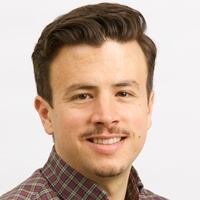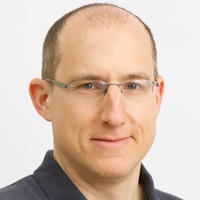Eawag’s fact sheets, reports for federal and cantonal offices, and news releases provide scientific input for the decisions that we make as consumers and voters and that our elected representatives make on our behalf. Our researchers participate in advisory boards and committees and contribute to events and courses for regulators, practitioners and the interested public. These are valuable channels for the broader dissemination of scientific knowledge and fulfill part of our mandate as a publically-funded research institute. In these contexts, it is important that Eawag is trusted as an ‘honest broker’ and source of objective scientific information.
At the same time, Eawag’s researchers (and other employees) may be engaged as activists or advocates on environmental issues. Such freedom of political expression is an essential element of a democratic society. In 2020, the United Nations Special Rapporteur on the promotion and protection of the right to freedom of opinion and expression highlighted “the special role played by academics and academic institutions in democratic society … noting that, without academic freedom, societies lose one of the essential elements of democratic self-governance: the capacity for self-reflection, for knowledge generation and for a constant search for improvements of people’s lives and social conditions.”
Eawag respects the right of our colleagues to speak or write as citizens, free from institutional censorship or retribution. In their advocacy or political statements, Eawag colleagues can help to protect the positioning of the institution by:
- being accurate,
- exercising appropriate restraint,
- showing respect for the opinions of others, and
- making every effort to indicate that they are not speaking for the institution.
Scientific information is generated by people working within a social system. Although objectivity is a core value of science, providing scientific information that is truly free from bias (including unconscious bias) on complex environmental issues can hardly be expected from any individual or even from a single institution. In addition, scientific information is subject to uncertainty – it is a challenge to communicate uncertainty clearly without completely undermining the value of the information.
The prosperity of our society and the strength of its economy are built on past advances in science and technology. Our current activities in research, education, and expert consulting are supported by society. I am convinced that improving public understanding of the scientific process and of the knowledge and technology that it produces will benefit both the scientific enterprise and the broader society.
Graphic credit: By Spektrumdw - Own work, CC BY-SA 4.0, https://commons.wikimedia.org/w/index.php?curid=73611142
Further information
AAAS Statement on Scientific Freedom & Responsibility
https://www.aaas.org/programs/scientific-responsibility-human-rights-law/aaas-statement-scientific-freedom
AAUP (2015) “Committee A: Statement on Extramural Utterances”, Policy Documents and Reports, 11th edition, American Association of University Professors, Washington DC, p. 31. https://www.aaup.org/reports-publications/publications/redbook
Hering, J. G. (2017). Maintaining trust and objectivity in the context of use-inspired research. Environmental Science and Technology, 51(3), 1054. https://doi.org/10.1021/acs.est.6b05825 Open access accepted version available at: https://www.dora.lib4ri.ch/eawag/islandora/object/eawag:13841
Howe, N. (2020) ‘Stick to the science’: when science gets political, Nature podcast, https://www.nature.com/articles/d41586-020-03067-w
Kaye, D. (2020) Report of the Special Rapporteur on the promotion and protection of the right to freedom of opinion and expression, https://www.ohchr.org/EN/Issues/FreedomOpinion/Pages/AcademicFreedom.aspx














0 Comments
No comments found!